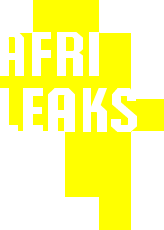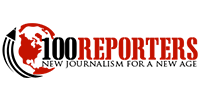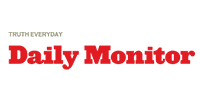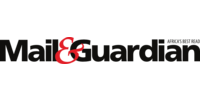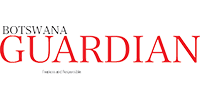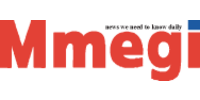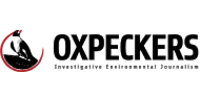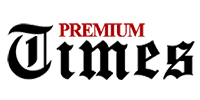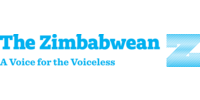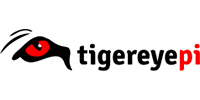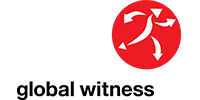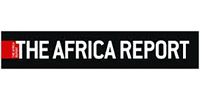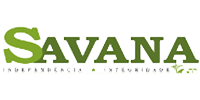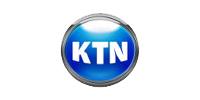Welcome To afriLEAKS
afriLEAKS allows you to leak confidential documents of public interest. We've designed the system to help you share these materials while protecting your own identity, making it very hard to identify you as the source of the leak.
afriLEAKS is run by an alliance of African news organisations that are committed to speaking truth to power. You can send us documents and select which of our member organisations should perform an investigation. This site also helps you to stay in touch and answer further questions without revealing your name or contact information.
How to leak confidential documents
If you have information about issues which should be investigated, share them with one of afriLEAKS's news partners using this site. Consider that concrete information and evidence, such as source documents, gives a journalist more to work with and increases the likelihood that your issue gets taken up.
Protect your identity
Leaking sensitive information involves risks. There are both social and technical risks that threaten your anonymity. At the same time, there are measures you can take to protect yourself. See 'Your Security' for more details.
Who should receive your information?
The press checks those in power and exposes misconduct or abuse of power. The media has the resources to bring issues into the public light. Journalists are professionals who investigate, ask critical questions, and ensure all parties involved are asked about their side of the story. Furthermore, they work for mass media (newspapers, magazines, websites, radio, or television programs) through which they can make their research public.
As a whistleblower, why should I use afriLEAKS?
This website uses state of the art security software to anonymize your internet connection as you submit documents or correspond with reporters. This way your identity is protected both from the reporters who receive the documents and from others who might be monitoring or intercepting your communications.
How is afriLEAKS different from Wikileaks?
afriLEAKS isn’t like Wikileaks. Wikileaks publishes the information it receives directly. afriLEAKS, on the other hand, is a highly secure mailbox connecting investigative media houses to whistleblowers. Documents shared on afriLEAKS form the beginning of a journalistic inquiry instead of being shared directly on the web.
How do you select media organisations?
The afriLEAKS receivers must meet several criteria: excellence in investigative journalism, integrity in content and investigative processes, geographic relevance, etc.
Media houses that comprise the African Network of Centers for Investigative Reporting (ANCIR) were initially approached with these principles in mind. Others that have subsequently approached us are vetted by a board of leading investigative journalists.
Why is the afriLEAKS connection so slow?
The connection to afriLEAKS goes through the Tor network. Tor is a system of virtual tunnels and relaying computers that hide the sender of information from possible attackers. While this helps to protect your anonymity, the disadvantage is that this can make the connection very slow.
Does uploading information involve danger?
Leaking is never without risk. afriLEAKS tries, as much as possible, to protect information and to provide information about the risks.
The system makes finding the source of a leak difficult. Our receivers are journalists that have been trained in the use of state-of-the-art security tools and procedures.
That said, while trying to mitigate the risks as much as possible, the whistleblower and journalists are responsible for their own actions.
Security for whistleblowers
Leaking sensitive information is not free of risk. There social as well as technical risks involved that can threaten your anonymity. You can however, take precautionary measures to protect yourself.
Social Risks
Before you leak information, you should be aware of what can and will happen with the information that you have leaked and how it could possibly be published. You can ask yourself the following questions for example:
- Are you the only person with access to this information? In other words, can it be directly related back to you personally?
- Are you aware that, after the information has been published, people can ask you questions about the leaked information, even without knowing you are the source?
- Can you handle the pressure that comes with a possible internal or external investigation about the leaked information?
Technological Risks
You should be aware that whenever you use a computer, mobile phone or the internet, or other forms of communication, most of these actions will leave traces. Investigators could use that kind of information to help identify you, your whereabouts or your contacts. You can take very specific risk mitigating precautions to prevent you from leaving such electronic traces. Your computer, for example, could leave traces as a result of the following activities:
- Visiting a whistleblower platform such as AfriLeaks, Globaleaks or Wikileaks;
- a copy of the information you yourself leaked to such a whistleblower platform;
- the uploading of the information itself;
- correspondence with journalists involved with the whistleblower platform;
- your name and other information in Word file meta data (author, date, etc);
As you can see, there are various risks involved and the ones listed above are by no means all of them. Yet with a few technical steps you can try to minimize these risks as much as possible.
Social Security
When it comes to the social security aspect, you should at least take the following into consideration:
- Before and after leaking the information, tell absolutely no-one that you will do so or have done so;
- after the leaked information has hit the media, be careful when sharing your opinion on the matter;
- ensure that there are no monitoring or surveillance systems in place when you upload the information (such as security cameras for example);
- do not use search engines or news websites looking specifically for the information you leaked. This could arouse suspicion about your involvement;
These are just a few simple measures that you can take to better protect yourself.
Technical Protection
Because computers and networksystems are complex, technical measures to protect your anonymity are often complicated. To ensure the technical security of your anonymity for as far as reasonably possible, you need to be computer-savvy enough to understand these risks yourself.
By following the procedures listed below, you will greatly enhance your anonymity:
- Use the Tor Browser Bundle software for surfing the web anonymously. This is easy to use software.
- Besides using the Tor Browser Bundle you should also use BleachBit, which will thoroughly clean up your machine and get rid of cookies, logs, etcetera.
- Do not upload information from your own work or home computer, use an internet cafe instead.
- Do not keep a copy of the leaked information yourself.
- Ensure that you do not leave a trace of the leaked information on computer systems. Remove all the files from a USB disk you may have used, then fill the USB drive with music, movies or photos. To ensure the files can no longer be recovered, format the drive(s) and then overwrite the free space multiple times using security tools.
- Some information might contain meta-data, such as the author and date that the file was written or the type of camera a photo was made with. Try to remove any and all meta-data that is not relevant to the leaked information and might expose you personally.
By following the procedures listed above and taking into consideration the social risk factors, you will greatly increase your chances of remaining anonymous. This does not mean that your anonymity will be 100% protected and ensured. To increase your general knowledge on digital security we recommend reading: SecurityInABox.org. This website explains many common risks involved with electronic communications and ways to mitigate them.
Getting in touch
If you want to share sensitive information with us, please use our secure system:
You should never submit information to afriLEAKS outside of this secure whistleblowing system.
Do not (!) use E-Mail to submit sensitive information to us.
Media inquiries and questions to the team
Do not use this address to send us any documents or leaks.
For non-sensitive questions about afriLEAKS you can send a message to: info@afrileaks.org [PGP PUBLIC KEY (?)].
Please use this address for press inquiries, or if you are interested in becoming a receiver.
For such material, be sure to use the secure submission system.
